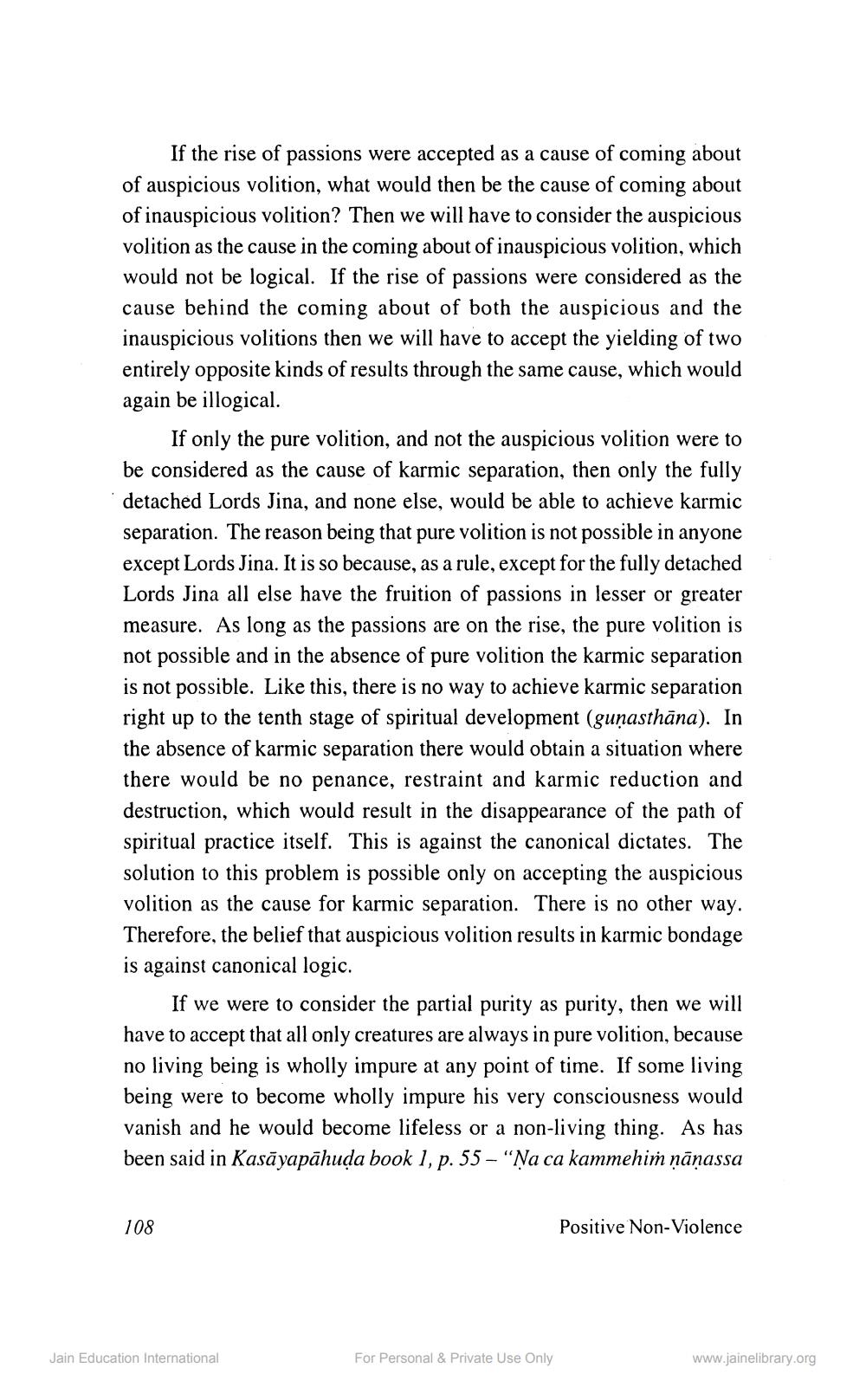________________
If the rise of passions were accepted as a cause of coming about of auspicious volition, what would then be the cause of coming about of inauspicious volition? Then we will have to consider the auspicious volition as the cause in the coming about of inauspicious volition, which would not be logical. If the rise of passions were considered as the cause behind the coming about of both the auspicious and the inauspicious volitions then we will have to accept the yielding of two entirely opposite kinds of results through the same cause, which would again be illogical.
If only the pure volition, and not the auspicious volition were to be considered as the cause of karmic separation, then only the fully detached Lords Jina, and none else, would be able to achieve karmic separation. The reason being that pure volition is not possible in anyone except Lords Jina. It is so because, as a rule, except for the fully detached Lords Jina all else have the fruition of passions in lesser or greater measure. As long as the passions are on the rise, the pure volition is not possible and in the absence of pure volition the karmic separation is not possible. Like this, there is no way to achieve karmic separation right up to the tenth stage of spiritual development (guṇasthāna). In the absence of karmic separation there would obtain a situation where there would be no penance, restraint and karmic reduction and destruction, which would result in the disappearance of the path of spiritual practice itself. This is against the canonical dictates. The solution to this problem is possible only on accepting the auspicious volition as the cause for karmic separation. There is no other way. Therefore, the belief that auspicious volition results in karmic bondage is against canonical logic.
If we were to consider the partial purity as purity, then we will have to accept that all only creatures are always in pure volition, because no living being is wholly impure at any point of time. If some living being were to become wholly impure his very consciousness would vanish and he would become lifeless or a non-living thing. As has been said in Kasayapāhuḍa book 1, p. 55 - "Na ca kammehim ṇāṇassa
108
Jain Education International
For Personal & Private Use Only
Positive Non-Violence
www.jainelibrary.org




